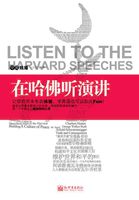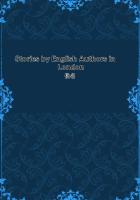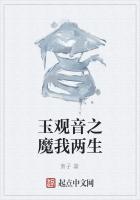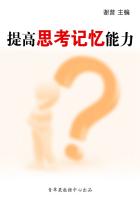THEY SPENT THE rest of the morning discussing the matter. It was certainly a shock for four persons who in the ordinary course should have been luxuriating in the clubs and mission houses of Peshawar, to find themselves faced instead with the prospect of two months in a Tibetan monastery. But it was in the nature of things that the initial shock of their arrival should have left them with slender reserves either of indignation or astonishment; even Mallinson, after his first outburst, subsided into a mood of half-bewildered fatalism.
"I'm past arguing about it, Conway,"he said, puffing at a cigarette with nervous irritability. "You know how I feel. I've said all along that there's something queer about this business. It's crooked. I'd like to be out of it this minute."
"I don't blame you for that," replied Conway. "Unfortunately, it's not a question of what any of us would like, but of what we've all got to put up with. Frankly, if these people say they won't or can't supply us with the necessary porters, there's nothing for it but to wait till the other fellows come. I'm sorry to admit that we're so helpless in the matter, but I'm afraid it's the truth."
"You mean we've got to stay here for two months?"
"I don't see what else we can do."
Mallinson flicked his cigarette ash with a gesture of forced nonchalance. "All right, then. Two months it is. And now let's all shout hooray about it."
Conway went on:"I don't see why it should be much worse than two months in any other isolated part of the world. People in our jobs are used to being sent to odd places, I think I can say that of us all. Of course, it's bad for those of us who have friends and relatives. Personally, I'm fortunate in that respect, I can't think of any one who'll worry over me acutely, and my work, whatever it might have been, can easily be done by somebody else."
He turned to the others as if inviting them to state their own cases. Mallinson proffered no information, but Conway knew roughly how he was situated. He had parents and a girl in England; it made things hard.
Barnard, on the other hand, accepted the position with what Conway had learned to regard as an habitual good humor. "Well, I guess I'm pretty lucky, for that matter, two months in the penitentiary won't kill me. As for the folks in my home town, they won't bat an eye. I've always been a bad letter writer."
"You forget that our names will be in the papers," Conway reminded him. "We shall all be posted missing, and people will naturally assume the worst."
Barnard looked startled for the moment; then he replied, with a slight grin: "Oh, yes, that's true, but it don't affect me, I assure you."
Conway was glad it didn't, though the matter remained a little puzzling. He turned to Miss Brinklow who till then had been remarkably silent;she had not offered any opinion during the interview with Chang. He imagined that she too might have comparatively few personal worries. She said brightly:"As Mr. Barnard says, two months here is nothing to make a fuss about. It's all the same, wherever one is, when one's in the Lord's service. Providence has sent me here. I regard it as a call."
Conway thought the attitude a very convenient one, in the circumstances. "I'm sure," he said encouragingly, "you'll find your mission society pleased with you when you do return. You'll be able to give much useful information. We'll all of us have had an experience, for that matter. That should be a small consolation."
The talk then became general. Conway was rather surprised at the ease with which Barnard and Miss Brinklow had accommodated themselves to the new prospect. He was relieved, however, as well; it left him with only one disgruntled person to deal with. Yet even Mallinson, after the strain of all the arguing, was experiencing a reaction; he was still perturbed, but more willing to look at the brighter side of things."Heaven knows what we shall find to do with ourselves," he exclaimed, but the mere fact of making such a remark showed that he was trying to reconcile himself.
"The first rule must be to avoid getting on each other's nerves,"replied Conway. "Happily, the place seems big enough, and by no means overpopulated. Except for servants, we've only seen one of its inhabitants so far."
Barnard could find another reason for optimism. "We won't starve, at any rate, if our meals up to now are a fair sample. You know, Conway, this place isn't run without plenty of hard cash. Those baths, for instance, they cost real money. And I can't see that anybody earns anything here, unless those chaps in the valley have jobs, and even then, they wouldn't produce enough for export. I'd like to know if they work any minerals."
"The whole place is a confounded mystery," responded Mallinson. "I dare say they've got pots of money hidden away, like the Jesuits. As for the baths, probably some millionaire supporter presented them. Anyhow, it won't worry me, once I get away. I must say, though, the view is rather good, in its way. Fine winter sports centre if it were in the right spot. I wonder if one could get any skiing on some of those slopes up yonder?"
Conway gave him a searching and slightly amused glance. "Yesterday, when I found some edelweiss, you reminded me that I wasn't in the Alps. I think it's my turn to say the same thing now. I wouldn't advise you to try any of your Wengen-Scheidegg tricks in this part of the world."
"I don't suppose anybody here has ever seen a ski-jump."
"Or even an ice-hockey match," responded Conway banteringly."You might try to raise some teams. What about 'Gentlemen v. Lamas'?"
"It would certainly teach them to play the game," Miss Brinklow put in with sparkling seriousness.
Adequate comment upon this might have been difficult, but there was no necessity, since lunch was about to be served and its character and promptness combined to make an agreeable impression. Afterwards, when Chang entered, there was small disposition to continue the squabble. With great tactfulness the Chinese assumed that he was still on good terms with everybody, and the four exiles allowed the assumption to stand. Indeed, when he suggested that they might care to be shown a little more of the lamasery buildings, and that if so, he would be pleased to act as guide, the offer was readily accepted.
"Why, surely,"said Barnard. "We may as well give the place the once-over while we're here. I reckon it'll be a long time before any of us pay a second visit."
Miss Brinklow struck a more thought-giving note."When we left Baskul in that aeroplane I'm sure I never dreamed we should ever get to a place like this,"she murmured as they all moved off under Chang's escort.
"And we don't know yet why we have,"answered Mallinson unforgetfully.
Conway had no race or color prejudice, and it was an affectation for him to pretend, as he sometimes did in clubs and first-class railway carriages, that he set any particular store on the"whiteness"of a lobster-red face under a topee. It saved trouble to let it be so assumed, especially in India, and Conway was a conscientious trouble-saver. But in China it had been less necessary;he had had many Chinese friends, and it had never occurred to him to treat them as inferiors. Hence, in his intercourse with Chang, he was sufficiently unpreoccupied to see in him a mannered old gentleman who might not be entirely trustworthy, but who was certainly of high intelligence. Mallinson, on the other hand, tended to regard him through the bars of an imaginary cage;Miss Brinklow was sharp and sprightly, as with the heathen in his blindness;while Barnard's wise-cracking bonhomie was of the kind he would have cultivated with a butler.
Meanwhile the grand tour of Shangri-La was interesting enough to transcend these attitudes. It was not the first monastic institution Conway had inspected, but it was easily the largest and, apart from its situation, the most remarkable. The mere procession through rooms and courtyards was an afternoon's exercise, though he was aware of many apartments passed by, indeed, of whole buildings into which Chang did not offer admission. The party were shown enough, however, to confirm the impressions each one of them had formed already. Barnard was more certain than ever that the lamas were rich;Miss Brinklow discovered abundant evidence that they were immoral. Mallinson, after the first novelty had worn off, found himself no less fatigued than on many sight-seeing excursions at lower altitudes;the lamas, he feared, were not likely to be his heroes.
Conway alone submitted to a rich and growing enchantment. It was not so much any individual thing that attracted him as the gradual revelation of elegance, of modest and impeccable taste, of harmony so fragrant that it seemed to gratify the eye without arresting it. Only indeed by a conscious effort did he recall himself from the artist's mood to the connoisseur's, and then he recognized treasures that museums and millionaires alike would have bargained for, exquisite pearl blue Sung ceramics, paintings in tinted inks preserved for more than a thousand years, lacquers in which the cold and lovely detail of fairyland was not so much depicted as orchestrated. A world of incomparable refinements still lingered tremulously in porcelain and varnish, yielding an instant of emotion before its dissolution into purest thought. There was no boastfulness, no striving after effect, no concentrated attack upon the feelings of the beholder. These delicate perfections had an air of having fluttered into existence like petals from a flower. They would have maddened a collector, but Conway did not collect;he lacked both money and the acquisitive instinct. His liking for Chinese art was an affair of the mind;in a world of increasing noise and hugeness, he turned in private to gentle, precise, and miniature things. And as he passed through room after room, a certain pathos touched him remotely at the thought of Karakal's piled immensity over and against such fragile charms.
The lamasery, however, had more to offer than a display of Chinoiserie. One of its features, for instance, was a very delightful library, lofty and spacious, and containing a multitude of books so retiringly housed in bays and alcoves that the whole atmosphere was more of wisdom than of learning, of good manners rather than seriousness. Conway, during a rapid glance at some of the shelves, found much to astonish him;the world's best literature was there, it seemed, as well as a great deal of abstruse and curious stuff that he could not appraise. Volumes in English, French, German, and Russian abounded, and there were vast quantities of Chinese and other Eastern scripts.
A section which interested him particularly was devoted to Tibetiana, if it might be so called; he noticed several rarities, among them t he Novo Descubrimento de grao catayo ou dos Regos de Tibet, by Antonio de Andrada(Lisbon,1626);Athanasius Kircher's China (Antwerp,1667);Thevenot's Voyage à la Chine des Pères Grueber et d'orville;and Beligatti's Relazione Inedita di un Viaggio al Tibet. He was examining the last named when he noticed Chang's eyes fixed on him in suave curiosity.
"You are a scholar, perhaps?" came the enquiry.
Conway found it hard to reply. His period of donhood at Oxford gave him some right to assent, but he knew that the word, though the highest of compliments from a Chinese, had yet a faintly priggish sound for English ears, and chiefly out of consideration for his companions he demurred to it. He said:"I enjoy reading, of course, but my work during recent years hasn't supplied many opportunities for the studious life."
"Yet you wish for it?"
"Oh, I wouldn't say all that, but I'm certainly aware of its attractions."
Mallinson, who had picked up a book, interrupted: "Here's something for your studious life, Conway. It's a map of the country."
"We have a collection of several hundreds,"said Chang. "They are all open to your inspection, but perhaps I can save you trouble in one respect. You will not find Shangri-La marked on any."
"Curious," Conway made comment. "I wonder why?"
"There is a very good reason, but I am afraid that is all I can say."
Conway smiled, but Mallinson looked peevish again."Still piling up the mystery,"he said."So far we haven't seen much that any one need bother to conceal."
Suddenly Miss Brinklow came to life out of a mute preoccupation. "Aren't you going to show us the lamas at work?"she fluted, in the tone which one felt had intimidated many a Cook's man. One felt, too, that her mind was probably full of hazy visions of native handicrafts, prayer-mat weaving, or something picturesquely primitive that she could talk about when she got home. She had an extraordinary knack of never seeming very much surprised, yet of always seeming very slightly indignant, a combination of fixities which was not in the least disturbed by Chang's response:"I am sorry to say it is impossible. The lamas are never, or perhaps I should say only very rarely, seen by those outside the lamahood."
"I guess we'll have to miss'em then,"agreed Barnard. "But I do think it's a real pity. You've no notion how much I'd like to have shaken the hand of your head-man."
Chang acknowledged the remark with benign seriousness. Miss Brinklow, however, was not yet to be sidetracked. "What do the lamas do?" she continued.
"They devote themselves, madam, to contemplation and to the pursuit of wisdom."
"But that isn't doing anything."
"Then, madam, they do nothing."
"I thought as much."She found occasion to sum up. "Well, Mr. Chang, it's a pleasure being shown all these things, I'm sure, but you won't convince me that a place like this does any real good. I prefer something more practical."
"Perhaps you would like to take tea?"
Conway wondered at first if this were intended ironically, but it soon appeared not; the afternoon had passed swiftly, and Chang, though frugal in eating, had the typical Chinese fondness for tea-drinking at frequent intervals. Miss Brinklow, too, confessed that visiting art galleries and museums always gave her a touch of headache. The party, therefore, fell in with the suggestion, and followed Chang through several courtyards to a scene of quite sudden and unmatched loveliness.
From a colonnade steps descended to a garden, in which a lotus pool lay entrapped, the leaves so closely set that they gave an impression of a floor of moist green tiles. Fringing the pool were posed a brazen menagerie of lions, dragons, and unicorns, each offering a stylized ferocity that emphasized rather than offended the surrounding peace. The whole picture was so perfectly proportioned that the eye was entirely unhastened from one part to another; there was no vying or vanity, and even the summit of Karakal, peerless above the blue tiled roofs, seemed to have surrendered within the framework of an exquisite artistry.
"Pretty little place,"commented Barnard, as Chang led the way into an open pavilion which, to Conway's further delight, contained a harpsichord and a modern grand piano. He found this in some ways the crowning astonishment of a rather astonishing afternoon.
Chang answered all his questions with complete candour up to a point; the lamas, he explained, held Western music in high esteem, particularly that of Mozart; they had a collection of all the great European compositions, and some were skilled performers on various instruments.
Barnard was chiefly impressed by the transport problem."D'you mean to tell me that this pianno was brought here by the route we came along yesterday?"
"There is no other."
"Well, that certainly beats everything! Why, with a phonograph and a radio you'd be all fixed complete! Perhaps, though, you aren't yet acquainted with up-to-date music?"
"Oh, yes, we have had reports, but we are advised that the mountains would make wireless reception impossible, and as for a phonograph, the suggestion has already come before the authorities, but they have felt no need to hurry in the matter."
"I'd believe that even if you hadn't told me," Barnard retorted. "I guess that must be the slogan of your society, 'No hurry.' " He laughed loudly and then went on: "Well, to come down to details, suppose in due course your bosses decide that they do want a phonograph, what's the procedure? The makers wouldn't deliver here, that's a sure thing. You must have an agent in Pekin or Shanghai or somewhere, and I'll bet everything costs plenty by the time you handle it."
But Chang was no more to be drawn than on a previous occasion."Your surmises are intelligent, Mr. Barnard, but I fear I cannot discuss them."
So there they were again, Conway reflected, edging the invisible border-line between what might and might not be revealed. He thought he could soon begin to map out that line in imagination, though the impact of a new surprise deferred the matter. For servants were already bringing in the shallow bowls of scented tea, and along with the agile, lithe-limbed Tibetans there had also entered, quite inconspicuously, a girl in Chinese dress. She went directly to the harpsichord and began to play a gavotte by Rameau. The first bewitching twang stirred in Conway a pleasure that was beyond amazement; those silvery airs of eighteenth century France seemed to match in elegance the Sung vases and exquisite lacquers and the lotus pool beyond; the same death-defying fragrance hung about them, lending immortality through an age to which their spirit was alien.
Then he noticed the player. She had the long, slender nose, high cheekbones, and eggshell pallor of the Manchu; her black hair was drawn tightly back and braided; she looked very finished and miniature. Her mouth was like a little pink convolvulus, and she was quite still, except for her long-fingered hands. As soon as the gavotte was ended, she made a little obeisance and went out.
Chang smiled after her and then, with a touch of personal triumph, upon Conway. "You are pleased?" he queried.
"Who is she?" asked Mallinson, before Conway could reply.
"Her name is Lo-Tsen. She has much skill with Western keyboard music. Like myself, she has not yet attained the full initiation."
"I should think not, indeed!" exclaimed Miss Brinklow. "She looks hardly more than a child. So you have women lamas, then?"
"There are no sex distinctions among us."
"Extraordinary business, this lamahood of yours," Mallinson commented loftily, after a pause.
The rest of the tea-drinking proceeded without conversation;echoes of the harpsichord seemed still in the air, imposing a strange spell. Presently, leading the departure from the pavilion, Chang ventured to hope that the tour had been enjoyable. Conway, replying for the others, see-sawed with the customary courtesies. Chang then assured them of his own equal enjoyment, and hoped they would consider the resources of the music room and library wholly at their disposal throughout their stay. Conway, with some sincerity, thanked him again. "But what about the lamas?"he added. "Don't they ever want to use them?"
"They yield place with much gladness to their honored guests."
"Well, that's what I call real handsome,"said Barnard. "And what's more, it shows that the lamas do really know we exist. That's a step forward, anyhow, makes me feel much more at home. You've certainly got a swell outfit here, Chang, and that little girl of yours plays the pi-anno very nicely. How old would she be, I wonder?"
"I am afraid I cannot tell you."
Barnard laughed."You don't give away secrets about a lady's age, is that it?"
"Precisely," answered Chang with a faintly shadowing smile.
That evening, after dinner, Conway made occasion to leave the others and stroll out into the calm, moon-washed courtyards. Shangri-La was lovely then, touched with the mystery that lies at the core of all loveliness. The air was cold and still; the mighty spire of Karakal looked nearer, much nearer than by daylight. Conway was physically happy, emotionally satisfied, and mentally at ease; but in his intellect, which was not quite the same thing as mind, there was a little stir. He was puzzled. The line of secrecy that he had begun to map out grew sharper, but only to reveal an inscrutable background. The whole amazing series of events that had happened to him and his three chance companions swung now into a sort of focus; he could not yet understand them, but he believed they were somehow to be understood.
Passing along a cloister, he reached the terrace leaning over the valley. The scent of tuberose assailed him, full of delicate associations;in China it was called "the smell of moonlight". He thought whimsically that if moonlight had a sound also, it might well be the Rameau gavotte he had heard so recently; and that set him thinking of the little Manchu. It had not occurred to him to picture women at Shangri-La; one did not associate their presence with the general practice of monasticism. Still, he reflected, it might not be a disagreeable innovation; indeed, a female harpsichordist might be an asset to any community that permitted itself to be (in Chang's words) "moderately heretical."
He gazed over the edge into the blue-black emptiness. The drop was phantasmal; perhaps as much as a mile. He wondered if he would be allowed to descend it and inspect the valley civilization that had been talked of. The notion of this strange culture-pocket, hidden amongst unknown ranges, and ruled over by some vague kind of theocracy, interested him as a student of history, apart from the curious though perhaps related secrets of the lamasery.
Suddenly, on a flutter of air, came sounds from far below. Listening intently, he could hear gongs and trumpets and also (though perhaps only in imagination) the massed wail of voices. The sounds faded on a veer of the wind, then returned to fade again. But the hint of life and liveliness in those veiled depths served only to emphasize the austere serenity of Shangri-La. Its forsaken courts and pale pavilions simmered in repose from which all the fret of existence had ebbed away, leaving a hush as if moments hardly dared to pass.
Then, from a window high above the terrace, he caught the rose-gold of lantern light; was it there that the lamas devoted themselves to contemplation and the pursuit of wisdom, and were those devotions now in progress? The problem seemed one that he could solve merely by entering at the nearest door and exploring through gallery and corridor until the truth were his; but he knew that such freedom was illusory, and that in fact his movements were watched.
Two Tibetans had padded across the terrace and were idling near the parapet. Good-humored fellows they looked, shrugging their colored cloaks negligently over naked shoulders. The whisper of gongs and trumpets uprose again, and Conway heard one of the men question his companion. The answer came: "They have buried Talu."
Conway, whose knowledge of Tibetan was very slight, hoped they would continue talking; he could not gather much from a single remark. After a pause the questioner, who was inaudible, resumed the conversation and obtained answers which Conway overheard and loosely understood as follows:
"He died outside."
"He obeyed the high ones of Shangri-La."
"He came through the air over the great mountains with a bird to hold him."
"Strangers he brought, also."
"Talu was not afraid of the outside wind, nor of the outside cold."
"Though he went outside long ago, the valley of Blue Moon remembers him still."
Nothing more was said that Conway could interpret, and after waiting for some time he went back to his own quarters. He had heard enough to turn another key in the locked mystery, and it fitted so well that he wondered he had failed to supply it by his own deductions. It had, of course, crossed his mind, but a certain initial and fantastic unreasonableness about it had been too much for him. Now he perceived that the unreasonableness, however fantastic, was to be swallowed. That flight from Baskul had not been the meaningless exploit of a madman. It had been something planned, prepared, and carried out at the instigation of Shangri-La. The dead pilot was known by the name to those who lived there; he had been one of them, in some sense; his death was mourned. Everything pointed to a high directing intelligence bent upon its own purposes: there had been, as it were, a single arch of intentions spanning the inexplicable hours and miles. But what was that intention? For what possible reason could four chance passengers in the British Government aeroplane be whisked away to these trans-Himalayan solitudes?
Conway was somewhat aghast at the problem, but by no means wholly displeased with it. It challenged him in the only way in which he was readily amenable to challenge—by touching a certain clarity of brain that only demanded a sufficient task. One thing he decided instantly;the cold thrill of discovery must not yet be communicated, neither to his companions, who could not help him, nor to his hosts, who doubtless would not.















